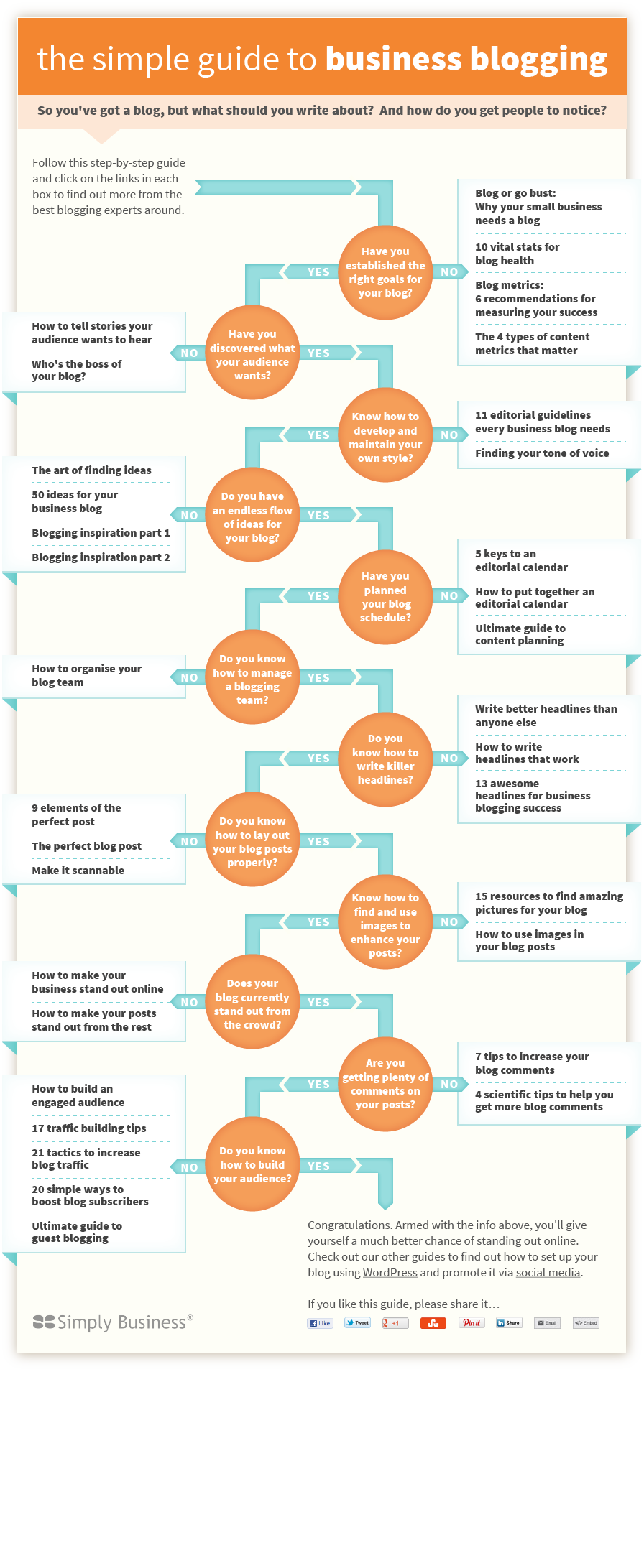As a content marketing tool, blogging can be very good for just about any type or size of business. Business blogging can help you to better connect with your customers, to provide them with valuable information on a topic, and to inject fresh content into your website.
However, while just about anyone can write a few paragraphs on a topic, successful blogging involves a great deal more than that. Business blogging must be planned well, done wisely, and provide real value to target audiences.
MORE: Choosing the Best Channels for Promoting Business Content
In the sections below we cover some of the benefits of blogging, and provide tips on how to blog successfully. Keep in mind that if you don’t have blog writers on your in-house team, it’s possible to engage a professional business blog writing service.

7 Benefits of business blogging
- Creates fresh content: Search engines make a point of giving preference to quality websites that show signs of being active. This means that while you are not likely to update or change your web pages very often, blogging can give you the opportunity to regularly inject new, relevant content on your site and create new pages for search engine indexing and ranking. This can help to increase the likelihood of your content showing up in SERPs (Search Engine Results Pages) than if your website was just left to go ‘stale’.
- Better connect with customers: Blogging allows you to create content that offers value to your target audiences and customers, and to connect with them by allowing comments, interaction and feedback.
- Provides opportunities for sharing and promotion: Your blogs can be shared on your social media pages, marketing emails, newsletters, or posted on different areas on your website – such under ‘news’ or ‘free resources’ sections.
- Allows you to establish authority:
Producing blog posts on your topic of expertise can enable you to showcase your knowledge and establish yourself as an authority in your field or industry. - Blogs can be repurposed: Blog posts can be given new life by repurposing them into SlideShares, videos, infographics, e-books and other formats. So even if they’ve not received much attention to date, they can always be brought to life in other ways.
- Lead generation: Blogging can be a very good lead generation tool. Not only that, your best blogs might continue to generate leads long after they are produced – maybe even while you are sleeping or on holiday!
- Expand on existing content: As well as allowing you to offer a fresh perspective to your audience on a topic, blogging can also enable you to add to existing content – such as by expanding on your website’s FAQs or its service pages.
MORE: Top Blogging Statistics: 45 Reasons to Blog
7 Tips for blogging successfully
- Decide what it is you want to achieve by blogging: Examples include improving business relationships, building community, generating leads – or all of the above. Knowing where you want blogging to take you helps you to create a solid plan and strategy, as opposed to producing blog posts just for the sake of it, or because someone told you that you should.
- Select interesting and relevant topics for posts: Your posts should provide value to your readers, such as by solving problems they may have, or providing information that helps to improve their lives. Ideas include handy hints, trending topics, case studies, news items, or answers to common questions in your industry.
If you have trouble coming up with topics, you could always check out what other businesses are blogging about, or set up news alerts for current news items on relevant topics. You might also consider surveying your audiences to find out what topics they would like to read or learn about. - Optimise your posts for search engines: Including popular keywords or search terms in your posts can help to improve your online visibility. However do so judiciously; it’s vital that your posts still read well and make sense, and that they are not overstuffed with keywords – which could go against you anyway!
- Create a calendar or schedule for blog posts: This should contain a list of selected topics, keywords or search terms to be included, and dates for posting. It’s important to post on a regular basis, rather than wait around for inspiration.
- Make sure your posts are well-written: This means using good grammar and correct spelling, and succinct headlines that outline the gist of the content to come. If writing is not your ‘thing’ or you just don’t have the time, hire a professional content writer instead.
- Include a call-to-action, if relevant: While it’s important that your posts are not overly promotional in tone, including a call-to-action can enable readers to know what they can do next if they are interested.
Balancing act
You might have noticed from the above that blogging can be a bit of a balancing act. On the one hand you can include keywords and use your posts to promote your business, but at the same time it’s important not to overdo keyword use or to over-promote!
However, it is safe to say that when done well blogging can be an excellent content marketing method which attracts interest in your business and generates leads and conversions.
Look out for our next post, which will be on using podcasting and webinars for content marketing.





